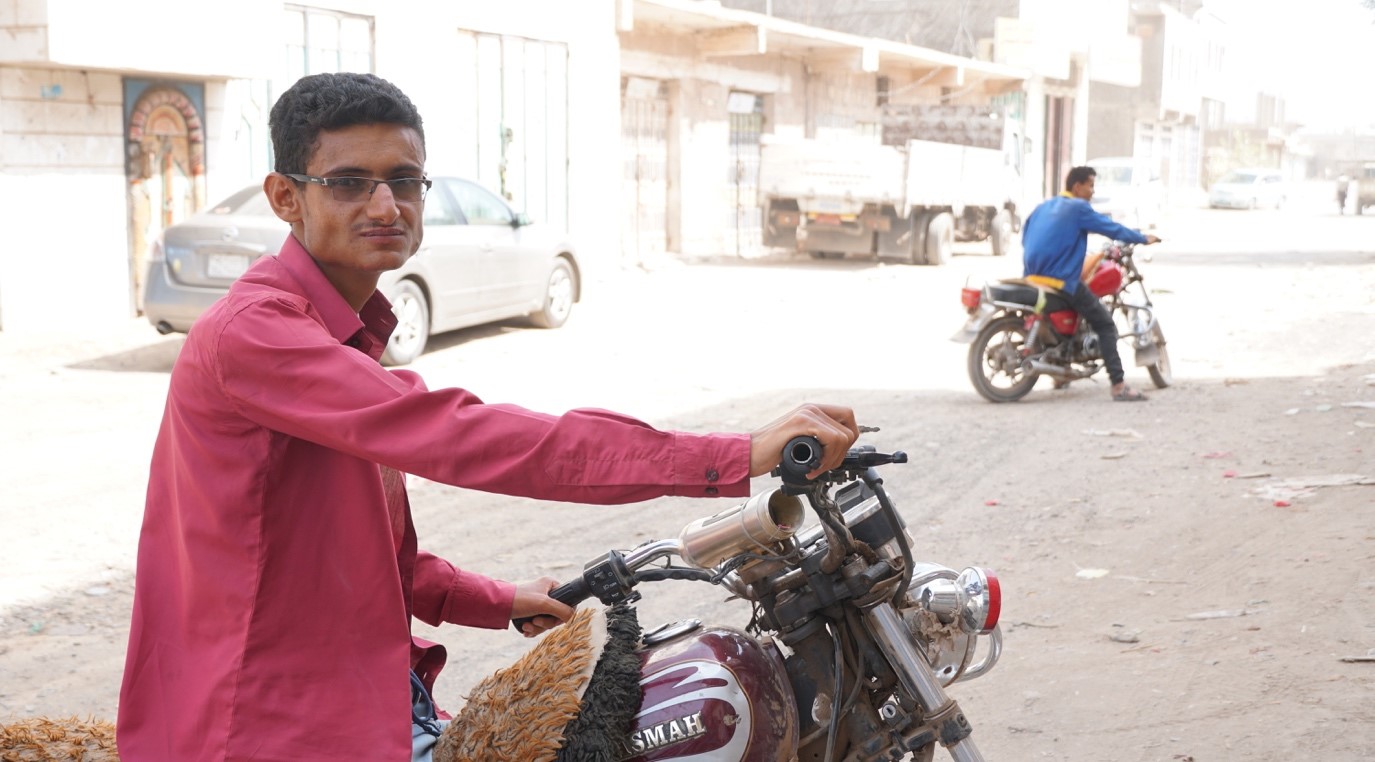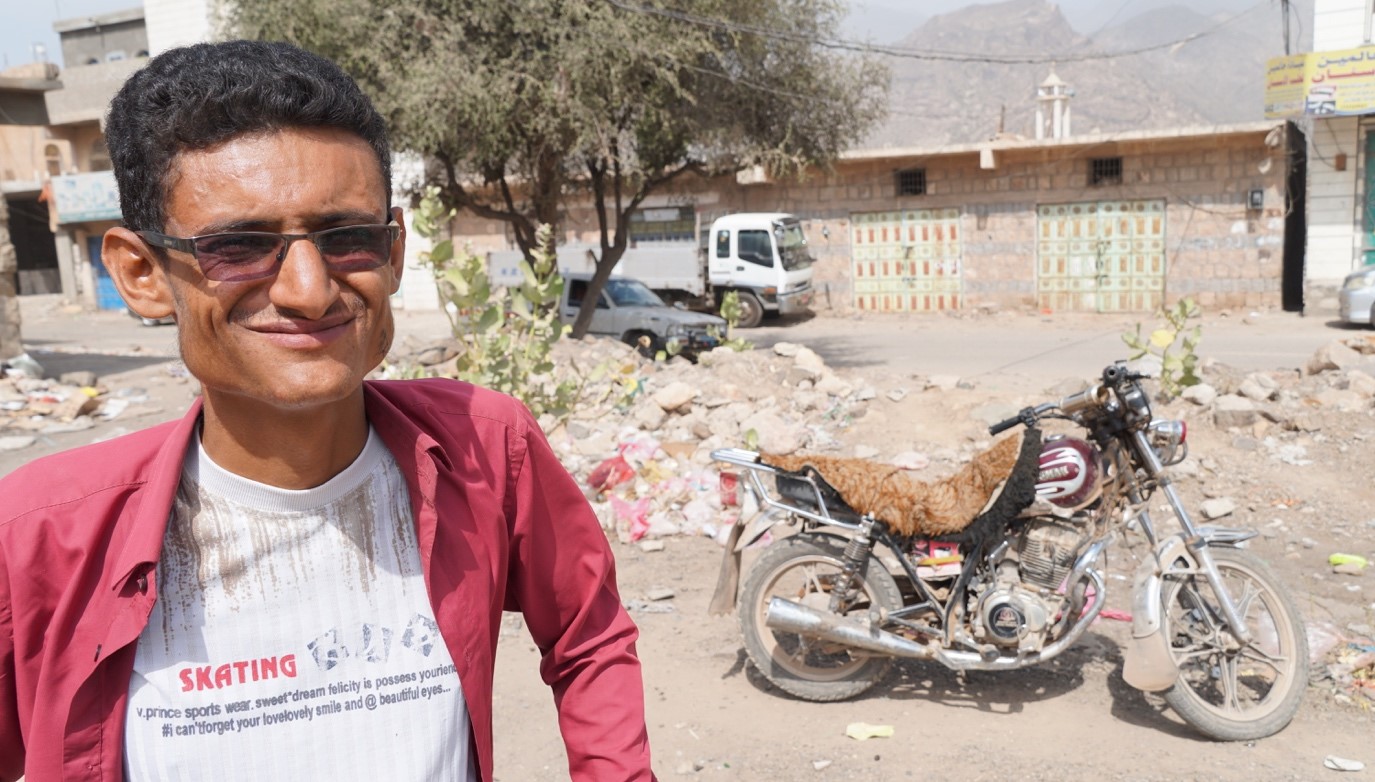Despite the difficult circumstances for Yemenis living in Lahj governorate of Yemen, food basket vouchers contribute to supporting the Yemeni economy and the economic empowerment of young people. In addition, vouchers are a basic source of food for vulnerable families who rely heavily on this monthly aid to meet their food needs.
Majed Saleh Ali is a young man and married father of two children living in Radfan district of Lahj governorate in southern Yemen. His area is one of the most deprived in Lahj, and Majed – like many young people – has not been able to find any work. As a result, he feels sadness and despair, especially because he is the sole provider for a large family of nine people.
“My family is poor,” says Majed. “My mother and brother suffer from mental and neurological diseases, and their treatment requires travel to Aden. This prompted us to move with the family to this city. Our village suffers from drought and there are no job opportunities, so I decided to displace from Al Dhale to Lahj governorate.”
Life in the city was not good for Majed’s family, who suffered from hunger, disease and poverty. They got some help from neighbours, as well as taking out debts and selling their livestock., but the family’s condition did not improve. “My mother and brother need medicines at a cost of more than $35 per month and this caused me pain because I couldn’t provide the medicine because I had no income,” he says crying.
With funding from USAID under the Yemen Emergency Food Assistance project, CARE intervened and began distributing food baskets to three thousand of the most food insecure people in Yemen.
After receiving eight food baskets over eight months, Majed was able to provide food for his family and start thinking about a project that would provide him with a sustainable income source. “I dreamed of buying a motorbike taxi to transport passengers,” he says. “And after saving money from working in construction as well as taking some loans, I found the opportunity.”



